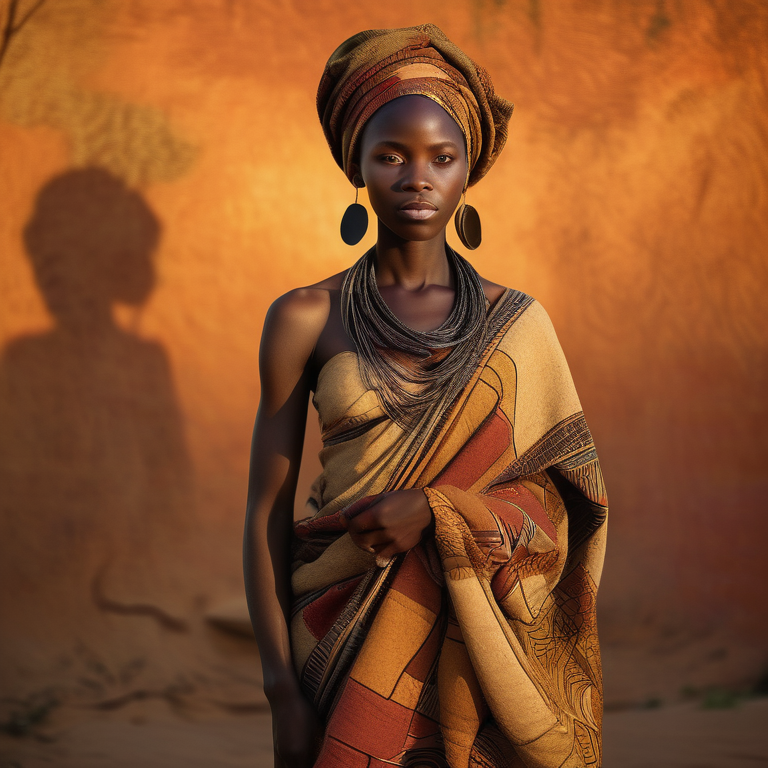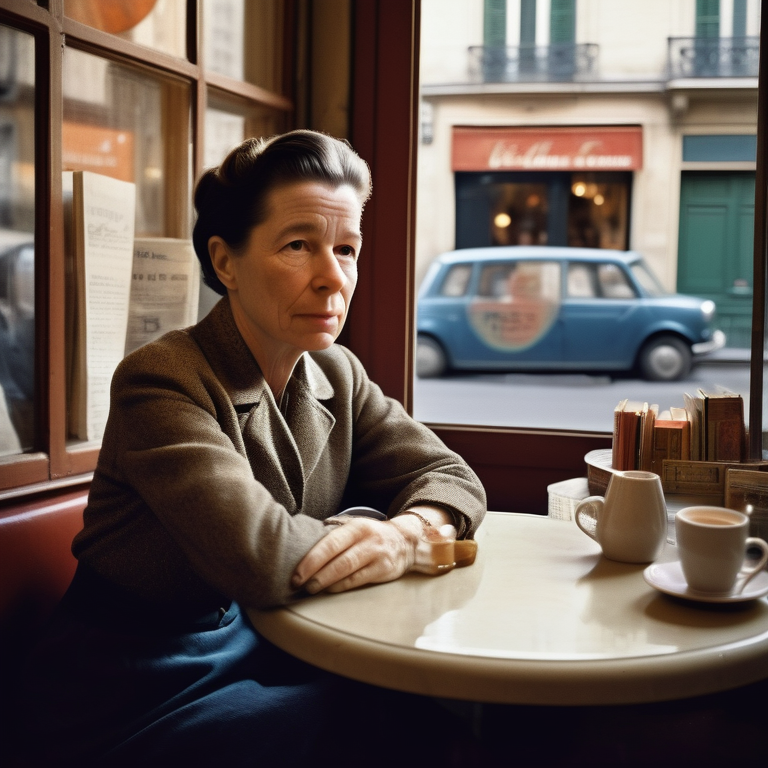Understanding Postcolonial Perspectives on Female Sexuality

Key Highlights
- Postcolonial perspectives on female sexuality offer a critical lens to examine the impact of colonialism and imperialism on women’s sexual identities and experiences.
- The historical context of colonialism and nationalism has shaped the understanding of female sexuality in different cultures.
- Postcolonial literature provides valuable insights into the representation of women and key themes related to female sexuality.
- Intersectionality plays a crucial role in postcolonial, highlighting the interconnectedness of race, class, and gender dynamics.
- Globalization has influenced postcolonial female sexual identities, leading to both cultural exchange and resistance.
- Western feminism has been critiqued from a postcolonial standpoint, highlighting the need for collaboration and solidarity.
- Religion and tradition have complex dynamics with female sexuality, involving conflicts and confluences, as well as the navigation of traditional beliefs in modern times.
Introduction
Postcolonial perspectives on female sexuality offer a critical lens to understand the complex dynamics between colonialism, imperialism, and women’s sexual identities and experiences. The legacy of colonialism has deeply influenced societal norms and attitudes towards female sexuality, shaping the understanding of gender roles, expectations, and power dynamics. By examining the historical context, exploring postcolonial literature, and analyzing the intersectionality in postcolonial feminism, we can gain a deeper understanding of how colonialism has impacted female sexuality in countries like India and how postcolonial perspectives challenge dominant narratives.
The Legacy of Colonialism on Female Sexuality
The legacy of colonialism on female sexuality is far-reaching and complex. Colonialism imposed Western values and norms on colonized societies, often leading to the suppression and erasure of indigenous knowledge and practices related to sexuality. This process of cultural assimilation and the imposition of Eurocentric ideals of femininity and sexuality have had lasting effects on women. Postcolonial perspectives, rooted in the concept of postcolonialism, seek to challenge and unpack these legacies, recognizing the diversity of sexual identities and experiences within different cultural contexts.
Examining the Historical Context
To understand the impact of colonialism on female sexuality, it is essential to examine the historical context. Colonialism involved the domination and exploitation of colonized territories by European powers, resulting in the imposition of European values and cultural norms. Nationalism, on the other hand, emerged as a response to colonialism, seeking to reclaim cultural identity and autonomy. The historical context of colonialism and nationalism has shaped the understanding of female sexuality in different cultures, with the Global South experiencing the direct impact of colonization.
The Impact on Contemporary Society
Postcolonial studies and feminism have played significant roles in analyzing the impact of colonialism on contemporary society. Postcolonial studies examine the power dynamics and legacies of colonialism, while feminism challenges gender inequalities and seeks to empower women. Together, these perspectives shed light on the complexities of female sexuality in the aftermath of colonialism. It is important to note that these perspectives are not limited to the Global South but also have relevance in the Global North, where the effects of colonialism are still present in societal norms and structures.
Postcolonial Literature and Female Sexuality
Postcolonial literature offers valuable insights into the representation of women and the exploration of female sexuality. Through diverse narratives and voices, postcolonial authors challenge dominant stereotypes and provide nuanced portrayals of women’s experiences. Postcolonial literature serves as a platform for marginalized voices to be heard, providing a space for the representation of diverse sexual identities and experiences. It acts as a sage, offering wisdom and knowledge about the complexities of female sexuality in postcolonial contexts.
Key Themes and Motifs
Postcolonial literature explores various key themes and motifs related to female sexuality. These include:
- The impact of colonialism on indigenous sexual practices and beliefs.
- The intersection of gender, race, and sexuality in postcolonial societies.
- The reclamation of sexual agency and empowerment by postcolonial women.
- The exploration of cultural and sexual hybridity in postcolonial contexts.
- The representation of sexual violence and its aftermath in postcolonial narratives.
Representation of Women in Postcolonial Narratives
The representation of women in postcolonial narratives is a crucial aspect of understanding female sexuality from a postcolonial perspective. Postcolonial authors challenge traditional patriarchal representations of women and provide diverse and complex portrayals, particularly in the context of Africa. These narratives offer a counter-narrative to the dominant colonial discourse and challenge stereotypes about women and their sexual identities. By centering women’s experiences and perspectives, postcolonial literature offers a more nuanced and inclusive understanding of female sexuality within the context of postcolonial societies.
Intersectionality in Postcolonial Feminism
Intersectionality plays a crucial role in postcolonial feminism, recognizing the interconnectedness of different forms of oppression and discrimination. The concept of intersectionality, coined by scholar and activist Kimberlé Crenshaw, highlights how gender, race, class, and other social identities intersect and mutually shape experiences of marginalization. Postcolonial feminists draw inspiration from intersectional thinkers like Audre Lorde, who emphasized the importance of recognizing and addressing the multiple forms of oppression faced by women. By considering the intersecting dimensions of identity, postcolonial feminism seeks to create a more inclusive and comprehensive understanding of female sexuality.
Race, Class, and Gender Dynamics
Race, class, and gender dynamics are interconnected and shape the experiences of women’s sexuality in postcolonial contexts. Colonialism reinforced racial hierarchies and created divisions among different groups. Socioeconomic class also plays a significant role in defining access to resources and opportunities, which in turn impacts women’s sexual agency. Gender, as a social construct, intersects with race and class, influencing power dynamics and social norms. Understanding the complex interplay between race, class, and gender dynamics is crucial for analyzing the experiences and challenges faced by women in postcolonial societies.
The Role of Intersectionality in Understanding Female Sexuality
Intersectionality provides a framework for understanding the complexities of female sexuality, as it recognizes that women’s experiences are shaped by multiple intersecting identities and systems of oppression. By considering the intersections of race, class, gender, and other aspects of identity, intersectionality allows for a more comprehensive and inclusive analysis of female sexuality. It highlights the importance of recognizing and addressing the unique challenges faced by women with intersecting identities, ensuring that no woman’s experience is overlooked or marginalized. Intersectionality plays a crucial role in understanding the complexities and diversities of female sexuality within postcolonial contexts.
Influence of Globalization on Postcolonial Female Sexual Identities
Globalization has had a significant influence on postcolonial female sexual identities. The increased interconnectedness and cultural exchange facilitated by globalization have both positive and negative implications for women’s sexual agency and autonomy. On one hand, globalization has allowed for the sharing of diverse perspectives and experiences, challenging traditional norms and empowering women. On the other hand, globalization has also brought with it the homogenization of cultural ideals and the imposition of Western values, which can marginalize and limit women’s choices. Postcolonial feminism seeks to navigate the complexities of globalization and resist the erasure of diverse female sexual identities through resistance and cultural exchange.
Cultural Exchange and Its Impacts
Cultural exchange plays a significant role in shaping postcolonial female sexual identities. Through cultural exchange, ideas and practices related to sexuality are shared and influenced by different cultural contexts. This exchange can lead to the empowerment and recognition of diverse sexual identities and experiences. However, cultural exchange can also be a site of power dynamics, with dominant cultural norms from the Global North, such as those propagated by the United States, influencing and marginalizing indigenous knowledge and practices from the Global South. It is crucial to critically examine the impacts of cultural exchange on postcolonial female sexual identities, ensuring that diverse voices and experiences are valued and respected.
Resistance and Adaptation in the Global Context
In response to the challenges posed by globalization, postcolonial female sexual identities have been shaped by resistance and adaptation. Women in postcolonial contexts have resisted the imposition of Western norms and sought to reclaim and celebrate their own cultural practices and sexual identities. At the same time, they have adapted to the changing global context, navigating the complexities of cultural hybridity and finding new ways to express their sexual agency. Resistance and adaptation are ongoing processes that reflect the agency and resilience of women in postcolonial societies, as they negotiate the tensions between tradition and modernity, local and global influences.
Critiquing Western Feminism from a Postcolonial Standpoint
Postcolonial feminism offers a critical perspective on Western feminism, challenging the universalisms and Eurocentric biases often present in mainstream feminist thought. Western feminism has been critiqued from a postcolonial standpoint for overlooking the diverse experiences and struggles of women in postcolonial contexts. Postcolonial feminists argue for a more inclusive and intersectional approach that acknowledges the complexities of race, culture, and colonial legacies. By critiquing Western feminism, postcolonial perspectives aim to bridge gaps and build solidarity among women worldwide, recognizing the importance of collaboration and understanding across different cultural and geopolitical contexts.
Differences in Feminist Thought
Differences in feminist thought arise from the unique historical, cultural, and political contexts of different regions and nations. Feminism in America and other parts of the Global North has often been shaped by predominantly white, middle-class perspectives. This has led to a focus on issues and experiences that may not fully capture the complexities of gender and sexuality in the postcolonial world. Postcolonial feminism challenges these dominant narratives and seeks to include a broader range of voices and experiences. By acknowledging the differences in feminist thought, we can create a more inclusive and comprehensive understanding of female sexuality that takes into account the diverse realities of women worldwide.
Bridging Gaps and Building Solidarity
Bridging gaps and building solidarity among feminists from different regions and contexts is essential for creating a more inclusive and effective feminist movement. Postcolonial feminism emphasizes the importance of recognizing and valuing the diverse experiences and struggles of women worldwide. By fostering dialogue, understanding, and collaboration, feminists can work together to address common challenges and fight for gender equality. Building solidarity requires recognizing and challenging intersecting systems of oppression and actively centering marginalized voices. Through bridging gaps and building solidarity, the feminist movement can become more intersectional, inclusive, and effective in challenging patriarchal structures and promoting social change.
The Role of Religion and Tradition
Religion and tradition play significant roles in shaping attitudes and norms around female sexuality. They can both provide a source of empowerment and reinforce patriarchal values and control over women’s bodies and desires. The intersection of religion, tradition, and female sexuality is complex and varies across different cultures and contexts. It is important to critically examine the conflicts and confluences between religion, tradition, and female sexuality, as well as the ways in which women navigate and challenge these norms in their pursuit of sexual agency and autonomy.
Conflicts and Confluences with Female Sexuality
Conflicts and confluences with female sexuality arise from the intersection of tradition, cultural norms, and individual desires and identities. On one hand, traditional beliefs and practices can restrict and regulate women’s sexual expression and agency, leading to conflicts and limitations. On the other hand, tradition can also provide a sense of identity, belonging, and community, offering comfort and support in navigating sexuality. The complex interplay between conflicts and confluences with female sexuality highlights the need for nuanced and inclusive discussions around tradition and its impact on women’s lives. By recognizing and addressing these dynamics, we can work towards creating spaces for women to embrace their sexual agency while respecting cultural traditions.
Navigating Traditional Beliefs in Modern Times
Navigating traditional beliefs in modern times is a challenge faced by many women in postcolonial societies. As societies become more modernized and influenced by global trends, traditional beliefs around female sexuality may clash with changing norms and expectations. Women often find themselves caught between the desire for personal autonomy and the pressure to adhere to cultural traditions. Navigating this complexity requires ongoing negotiation and the creation of spaces that allow women to reconcile tradition with their own desires and needs. By challenging restrictive norms and embracing dialogue, women can navigate the tensions between tradition and modernity and assert their sexual agency in a changing world.
Conclusion
Postcolonial perspectives on female sexuality shed light on the enduring impacts of colonialism and globalization. Through literature and intersectionality, these perspectives challenge traditional narratives and strive for cultural exchange. By critiquing Western feminism and navigating religion and tradition, they offer a nuanced understanding of female sexuality across diverse contexts. Postcolonial feminists contribute significantly to dismantling stereotypes and building solidarity. Embracing these multifaceted viewpoints is crucial in reshaping societal norms and fostering inclusivity. What are your thoughts on this insightful discourse? Share your views in the comments below.
Frequently Asked Questions
How Does Postcolonial Theory Address Female Sexuality?
Postcolonial theory addresses female sexuality by examining the impact of colonialism and imperialism on women’s sexual identities and experiences. It challenges dominant narratives and seeks to empower marginalized voices, particularly from the Global South. This research is of interest for understanding the connections between power, culture, and female sexuality in postcolonial contexts.
Can Postcolonial Feminism and Western Feminism Collaborate?
Postcolonial feminism and Western feminism can collaborate by recognizing and valuing the different perspectives and experiences of women worldwide. Collaboration requires an understanding of the power dynamics and privileges at play within Western feminism and a willingness to center marginalized voices. By building bridges and fostering solidarity, the feminist movement can become more inclusive, intersectional, and effective in challenging patriarchal structures.
What are some key themes in postcolonial perspectives on female sexuality?
Some key themes in postcolonial perspectives on female sexuality include the impact of colonialism on indigenous sexual practices, the intersectionality of race and gender in postcolonial societies, and the representation of diverse sexual identities and experiences. These themes highlight the complexities and diversities of female sexuality within postcolonial contexts.
How have colonial histories impacted the understanding of female sexuality in different cultures?
Colonial histories have had a profound impact on the understanding of female sexuality in different cultures. Colonialism imposed Western values and norms, often leading to the suppression and erasure of indigenous knowledge and practices. This has shaped societal attitudes and norms around female sexuality in postcolonial societies, influencing concepts of femininity, sexual agency, and gender roles.
What contributions have postcolonial feminists made to the discourse on female sexuality?
Postcolonial feminists have made significant contributions to the discourse on female sexuality by challenging dominant narratives and centering marginalized voices. They have highlighted the impact of colonialism on women’s sexual identities and experiences, emphasized the importance of intersectionality, and sought to create a more inclusive and comprehensive understanding of female sexuality. Their contributions have been particularly significant in the Global South, where the effects of colonialism are still deeply felt.
How can postcolonial perspectives help dismantle stereotypes about female sexuality?
Postcolonial perspectives can help dismantle stereotypes about female sexuality by challenging dominant narratives and centering diverse experiences and voices. By recognizing the complexities and diversities of female sexuality within postcolonial contexts, these perspectives provide a more nuanced and inclusive understanding. This helps counter stereotypes and promotes a more accurate and respectful representation of women’s sexual identities and experiences, not just in the Global South but also in the Global North.





